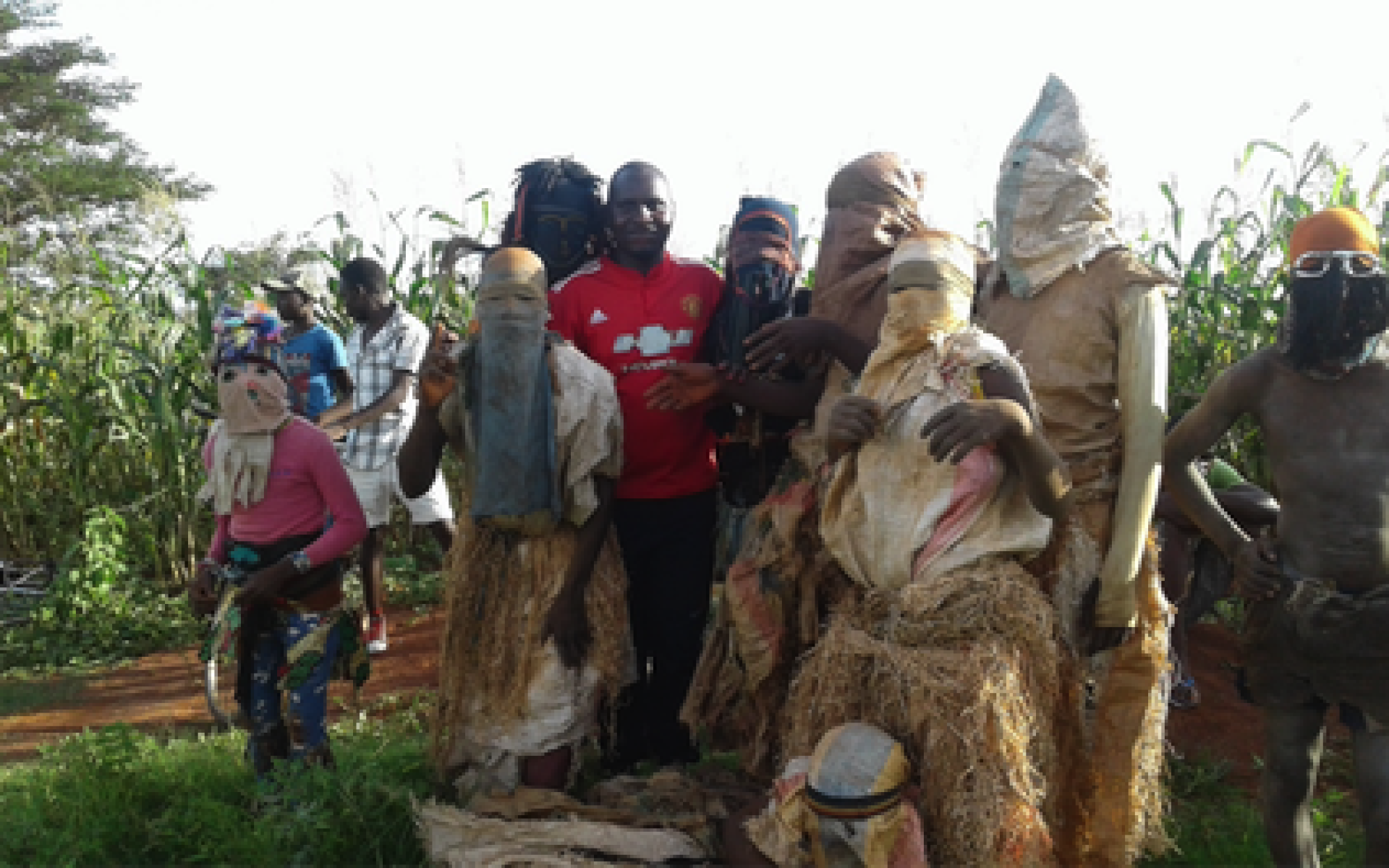Written by CorpsAfrica/Malawi Volunteer Mr. Jailos Ghambi
Gulewamkulu (the big dance) is a popular cultural dance one cannot miss among the Chewa in the Central region of Malawi. Since I was born and raised in the Northern Region of Malawi, I never had a positive attitude towards Gulewamkulu, until I witnessed it in my community. This is the danger of a single story. In the city of Lilongwe, I used to meet Gulewamkulu gang with machetes in their hand, dressed in a very funny way and, my brother would always advise me to run away because he said I risk getting robbed or even stabbed. He used to tell me that Gulewamkulu guys are wild animals and they do not care about someone’s life hence my instinct to fear them and run for life whenever I saw them.
When I reached my site, I felt nervous. Why? I had arrived in a new community which practices Gulewamkulu. This being my home for the next 6 months worried me. However, I have never seen Gulewamkulu walking around my community as I used to see in the city, and this gave me a lot of questions because I was expecting Gulewamkulu to be everywhere since it is a typical village where culture is expected to be preserved. From these questions I have been interested to find out more about Gulewamkulu. And, I have learned three unique reasons for Gulewamkulu that I never knew.
To begin with, Gulewamkulu is performed during traditional leader’s inauguration. These peculiarly dressed creatures entertain the masses with different dancing styles, and people give them small amounts of money.
Secondly, Gulewamkulu is practiced during funerals of loved ones. The family of the deceased are the ones to decide whether Gulewamkulu should be performed or not. In this scenario, where Gulewamkulu is allowed, no church activities are allowed. This is so because Gulewamkulu is also regarded as a religion on its own.
Last but not least, Gulewamkulu is performed during political rallies to portray their culture while at the same time entertaining the masses.
Too often we focus on a single story, excluding cultural influences, and other perspectives from different experiences. This single story is limiting and make us misinterpret people, their background and their lives. It can lead to judgement, disconnection and conflict. As a CorpsAfrica Volunteer I have learned that full integration is very important to understand the world around us—for I have learned that Gulewamkulu is not wild animals, it is a friendly cultural ceremony. Therefore, from this experience I admit that our lives and our culture are composed of many overlapping stories.

